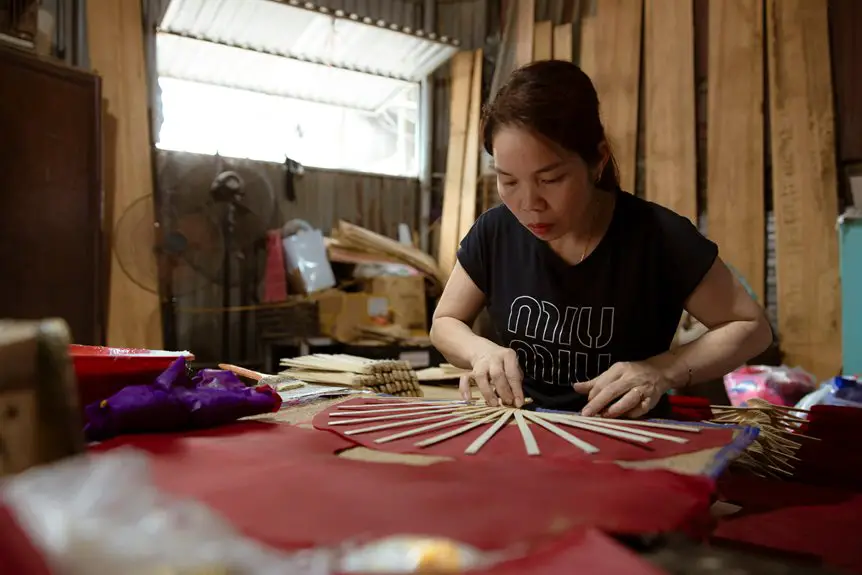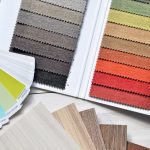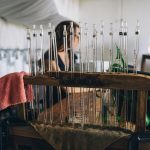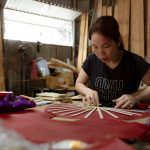If you’re looking for a fabric that not only feels good but also keeps odors at bay, bamboo might be worth considering. Its natural antibacterial properties and moisture-wicking abilities set it apart from other materials. But how does it stack up against traditional fabrics? Understanding its unique qualities could change your perspective on sustainable choices in your wardrobe. Let’s explore what makes bamboo fabric a compelling option for everyday wear.
Table of Contents
Key Takeaways
- Bamboo fabric’s natural antibacterial qualities inhibit the growth of odor-causing bacteria, effectively controlling unpleasant smells.
- Its moisture-wicking properties keep the skin dry, further reducing odor retention in clothing.
- The fabric’s breathability enhances air circulation, contributing to comfort and minimizing odor buildup.
- Bamboo’s softness and smooth texture enhance user experience, making it a popular choice for everyday wear.
- Compared to synthetic fabrics, bamboo offers superior odor control and maintains its strength and shape better over time.
Key Properties of Bamboo Fabric
Bamboo fabric stands out for its unique blend of properties that make it ideal for various applications, especially in odor control.
Bamboo fabric uniquely combines odor control properties, making it perfect for clothing and home textiles.
Its natural antibacterial qualities help prevent the growth of odor-causing bacteria, keeping your garments fresher for longer. Bamboo fibers are also incredibly absorbent, efficiently wicking away moisture from your skin.
This moisture management not only enhances comfort but also minimizes the chance of unpleasant smells developing. Additionally, the fabric’s breathability allows for better air circulation, further reducing odor retention.
You’ll appreciate how soft and smooth bamboo fabric feels against your skin, adding to its appeal. Overall, these key properties make bamboo fabric a fantastic choice for anyone seeking effective odor control in their clothing and home textiles.
Benefits of Using Bamboo Fabric
When you choose bamboo fabric, you’re opting for an eco-friendly option that helps reduce environmental impact.
Plus, its natural softness and breathability make it incredibly comfortable and versatile for various uses.
You’ll appreciate how it combines sustainability with everyday practicality.
Eco-Friendly Sustainability
As you explore sustainable fabric options, you’ll find bamboo stands out for its eco-friendly benefits.
Choosing bamboo fabric means you’re making a conscious decision for the planet. Here are some reasons to contemplate:
- Rapid Growth: Bamboo grows up to 3 feet in a single day, making it a highly renewable resource.
- Minimal Water Usage: It requires considerably less water than cotton, reducing strain on freshwater supplies.
- Pesticide-Free: Bamboo naturally resists pests, eliminating the need for harmful chemicals during cultivation.
- Biodegradable: When it’s time to dispose of your bamboo fabric, it breaks down naturally, leaving no harmful residues.
Comfort and Versatility
One of the standout features of bamboo fabric is its incredible comfort, making it a favorite choice for everyday wear.
You’ll love how soft it feels against your skin, providing a cozy sensation that’s hard to beat. Bamboo fabric is also breathable, allowing air to circulate, which keeps you cool and dry throughout the day.
Its natural moisture-wicking properties help manage sweat, making it perfect for both active and relaxed occasions. Plus, it’s incredibly versatile; whether you’re dressing up for a night out or lounging at home, bamboo fabric adapts beautifully.
With its stylish drape and range of colors, you can easily mix and match bamboo clothing with your existing wardrobe. You’ll find that comfort and style go hand in hand with bamboo!
Comparison With Other Fabrics
When choosing fabrics for odor control, it’s crucial to compare bamboo with cotton and synthetic options.
You’ll find that bamboo offers unique benefits, particularly in moisture-wicking and antibacterial properties.
Let’s explore how these fabrics stack up against each other.
Bamboo vs. Cotton
Although both bamboo and cotton are popular choices for fabrics, they offer distinct advantages and disadvantages that can affect your decision.
When choosing between the two, consider these factors:
- Eco-Friendliness: Bamboo grows quickly and requires less water, making it a more sustainable option.
- Softness: Bamboo is incredibly soft and often feels silkier against your skin compared to cotton.
- Odor Control: Bamboo naturally resists odors due to its antibacterial properties, keeping you fresher longer.
- Durability: Cotton can wear out faster, while bamboo tends to maintain its strength and shape over time.
Synthetic Fabrics Comparison
Synthetic fabrics, like polyester and nylon, offer unique benefits that can make them appealing alternatives to natural fibers. They’re often more durable and resistant to wear and tear, which means your clothes can last longer without losing shape.
Plus, they typically dry faster than bamboo or cotton, making them great for activewear. However, they don’t always manage odors as effectively as bamboo fabric.
While bamboo naturally combats bacteria and absorbs moisture, synthetic fabrics can trap sweat and odors, requiring more frequent washing.
Scientific Basis of Odor Control
Understanding the scientific basis of odor control reveals how bamboo fabric effectively combats unpleasant smells. Bamboo contains natural antimicrobial properties that inhibit the growth of odor-causing bacteria. When you wear bamboo fabric, you’re not just choosing comfort; you’re actively fighting odors.
Here are some reasons why bamboo excels in this area:
- Moisture-wicking: It absorbs sweat, reducing dampness and odor.
- Breathability: The fabric allows air circulation, keeping you fresh and dry.
- Antimicrobial agents: Natural compounds in bamboo kill bacteria that cause smells.
- Softness: The gentle feel reduces skin irritation, promoting overall comfort.
Practical Applications of Bamboo Fabric
Bamboo fabric’s unique properties make it an excellent choice for various practical applications, especially in clothing and home textiles.
You’ll find that its breathability and moisture-wicking abilities keep you comfortable in hot weather, making it ideal for athletic wear and everyday clothing. Additionally, the natural antibacterial qualities help control odor, so you can wear bamboo garments longer between washes.
In home textiles, consider bamboo sheets or towels; they provide softness and durability while resisting unpleasant smells. You can also use bamboo fabric in reusable bags or accessories, promoting sustainability.
Environmental and Health Benefits
While many fabrics contribute to environmental challenges, opting for bamboo fabric can greatly benefit both your health and the planet. By choosing bamboo, you support sustainable practices and enjoy a healthier lifestyle.
Here are some key benefits:
- Biodegradable: Bamboo decomposes naturally, reducing landfill waste.
- Pesticide-free: Bamboo grows without harmful chemicals, promoting safer ecosystems.
- Breathable and hypoallergenic: It helps keep your skin healthy, reducing irritation and allergies.
- Carbon sequestration: Bamboo absorbs more CO2 than many trees, helping combat climate change.
Embracing bamboo fabric isn’t just a fashion choice; it’s a commitment to environmental stewardship and personal wellness.
Choosing bamboo fabric goes beyond style; it reflects a dedication to caring for our planet and our well-being.
You can make a difference for yourself and future generations with every purchase.
How Bamboo Fabric Enhances Comfort
Many people find that bamboo fabric elevates their comfort levels like no other material. Its natural breathability allows air to flow freely, keeping you cool in warm weather and cozy during cooler days.
You’ll appreciate how soft and silky it feels against your skin, reducing irritation and chafing—perfect for sensitive skin. Bamboo fabric’s moisture-wicking properties help to draw sweat away, ensuring you stay dry and comfortable throughout the day.
Plus, it’s hypoallergenic, making it an excellent choice for those with allergies or skin sensitivities. When you wear bamboo, you’re not just enjoying luxurious comfort; you’re also experiencing a fabric that adapts to your body’s needs, providing the ultimate experience in clothing satisfaction.
The Sustainability of Bamboo Cultivation
When you consider sustainable materials, bamboo cultivation stands out due to its rapid growth and minimal impact on the environment. Unlike traditional crops, bamboo can grow up to three feet in a single day, making it a renewable resource.
Here are some reasons why you should embrace bamboo:
- Soil Health: Bamboo’s extensive root system prevents erosion and enriches the soil.
- Carbon Sequestration: It absorbs more carbon dioxide than many trees, helping combat climate change.
- Water Efficiency: Bamboo requires less water compared to conventional crops, conserving this precious resource.
- Biodiversity: Bamboo forests support a diverse ecosystem, offering habitat for various wildlife.
Choosing bamboo not only benefits you but also promotes a healthier planet for future generations.
The Future of Bamboo Fabric in Fashion
Bamboo’s sustainability not only makes it an eco-friendly choice for cultivation but also positions it as a promising fabric in the fashion industry.
Bamboo’s eco-friendly cultivation and sustainability make it a standout fabric in the fashion world.
As consumers increasingly seek sustainable options, bamboo fabric’s natural breathability and softness will likely catch your attention. It’s lightweight, moisture-wicking, and anti-bacterial, making it ideal for activewear and everyday clothing.
Designers are already experimenting with bamboo blends, creating stylish yet environmentally friendly pieces. You’ll see more brands adopting bamboo fabric in their collections, appealing to your desire for both style and sustainability.
In the future, expect innovations in dyeing processes and fabric technology, enhancing bamboo’s appeal. Embracing bamboo fabric means you’re not just wearing a trend; you’re supporting a greener fashion industry.
Frequently Asked Questions
How Is Bamboo Fabric Processed Into Clothing?
To process bamboo fabric into clothing, you’ll first extract cellulose from bamboo stalks. Then, you’ll spin the cellulose into fibers, weave them into fabric, and finally cut and sew the material into your desired clothing.
Can Bamboo Fabric Be Machine Washed?
When you wash bamboo fabric, think of a gentle stream nourishing a delicate flower. Yes, you can machine wash it, but use cold water and a gentle cycle to preserve its softness and longevity.
Does Bamboo Fabric Shrink After Washing?
Bamboo fabric can shrink slightly after washing, but if you follow proper care instructions, you can minimize this. Washing in cold water and air drying helps maintain its shape and size. You’ll enjoy its durability!
Is Bamboo Fabric Suitable for Outdoor Activities?
Oh sure, because nothing screams “adventure” like wearing bamboo fabric outdoors! But really, it’s breathable, moisture-wicking, and soft, making it quite suitable for outdoor activities. Just remember to avoid mud puddles; it doesn’t like that!
How Does Bamboo Fabric Compare in Cost to Cotton?
Bamboo fabric typically costs a bit more than cotton due to its sustainable production process. However, you might find that the benefits, like durability and comfort, make it worth the investment for your wardrobe.







